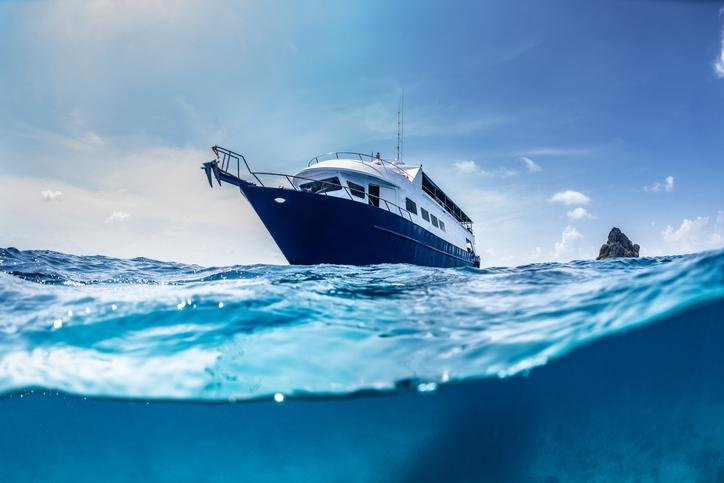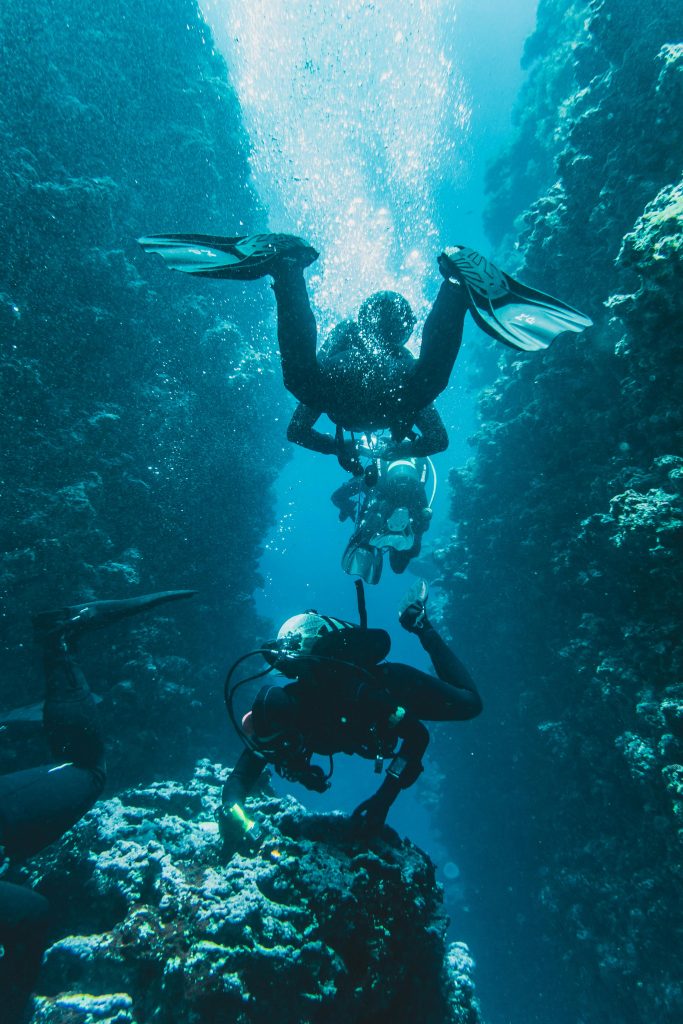A liveaboard dive holiday provides the ultimate scuba diving experience; waking to a glorious sunrise, exploring vibrant coral reefs and evenings spent floating under the stars. But with multiple daily dives, remote locations and a high price tag, this kind of trip comes with a specific set of risks. Therefore, having the right scuba diving travel insurance is essential. Our guide explains the key features to look for when buying liveaboard dive insurance so that you’re protected above and below the surface.
Quick Checklist for Choosing Liveaboard Dive Insurance
When choosing scuba diving travel insurance for a liveaboard holiday, make sure that your policy:

- ✅ Covers scuba diving as the main purpose of your trip
- ✅ Matches your planned dive depth
- ✅ Includes hyperbaric chamber treatment for decompression sickness
- ✅ Contains emergency evacuation and search and rescue cover
- ✅ Covers your dive equipment against loss, theft and damage
- ✅ Offers cancellation cover for the full trip cost
Why You Need Specialist Insurance for a Liveaboard Trip
A liveaboard trip can be costly and includes extended periods at sea, multiple dives per day plus remote or deep dive sites. Standard travel insurance often doesn’t cover
- Scuba diving as the primary purpose of your trip
- Diving below 18 metres (without an upgrade)
- Hyperbaric chamber treatment for decompression sickness
- Sea rescue or medical evacuation
- Loss, theft or damage to dive gear
- Missed liveaboard departure or lost diving days
Choosing the right policy means finding one that covers the diving you plan to do – including your maximum depth, the type of dives, and the equipment you’re bringing along
Key Considerations for Liveaboard Dive Insurance
1. Diving as the Main Purpose of the Trip
Many insurers will not cover you for scuba diving when it is the primary purpose of your trip.
✓ Choose a policy that explicitly covers diving trips. All policies in our curated list include this cover.
2. Depth Limits
Standard cover may only cover diving to 18 or 30 metres. Adventure or extreme sports upgrades may be required beyond this.
✓ Check that your insured depth limit matches your planned dive depth and certification.
3. Hyperbaric Chamber Coverage
The National Institute of Health estimates that there are 3 cases of decompression sickness (DCS) per 10,000 recreational scuba dives. Furthermore, Divers Alert Network (DAN) report that DCS is the second most commonly reported dive illness/injury.
In the event of DCS, you will need emergency treatment in a hyperbaric chamber. This can be costly and may not be covered by standard travel insurance. Some policies will only cover the hyperbaric treatment and not the cost of transporting you to the chamber. DAN estimate the average cost of an air ambulance to be €20,000.
✓ Check the policy explicitly states that hyperbaric chamber treatment is covered
✓ Ensure the cost of transport to a chamber is covered

4. Emergency Evacuation and Search & Rescue Cover
Remote dive sites may require costly air or sea evacuation.
✓ Look for policies that cover emergency medical evacuation and search & rescue costs.
5. Dive Equipment Cover
Dive gear is valuable – computers, regulators and underwater cameras are expensive to replace.
✓ Make sure your policy includes:
- Loss, theft and accidental damage cover
- High single items limits
- Rental costs for replacement equipment if your baggage is lost or delayed
6. Cancellation Cover
Liveaboard trips are expensive and bookings often non-refundable.
✓ Check your policy covers:
- Cancellation up to the full trip cost
- Missed liveaboard boat departure
- Lost diving days – due to weather, medical issues or mechanical breakdown
Where to Find Liveaboard Dive Insurance
At Cover My Adventure, we’ve poured over dozens of travel insurance policies to find those that suit divers. Check out our curated list of scuba diving travel insurance policies.
One policy we reviewed is specifically designed to cover liveaboard trips – DiveAssure’s Dive&Travel Plus Plan. This includes:
- Diving and non-diving medical evacuation and treatment
- Loss, theft or delay of diving equipment
- Up to $10,000 for missed liveaboard departures
- Compensation for lost diving days due to weather, illness or mechanical issues
Final Thoughts
Whilst a liveaboard holiday is an unforgettable diving experience, this type of trip comes with a specific set of risks. When choosing the right liveaboard dive insurance, make sure you are covered for the depths you’ll dive and the emergencies you could face.
✅ Visit our curated list of scuba diving travel insurance policies
